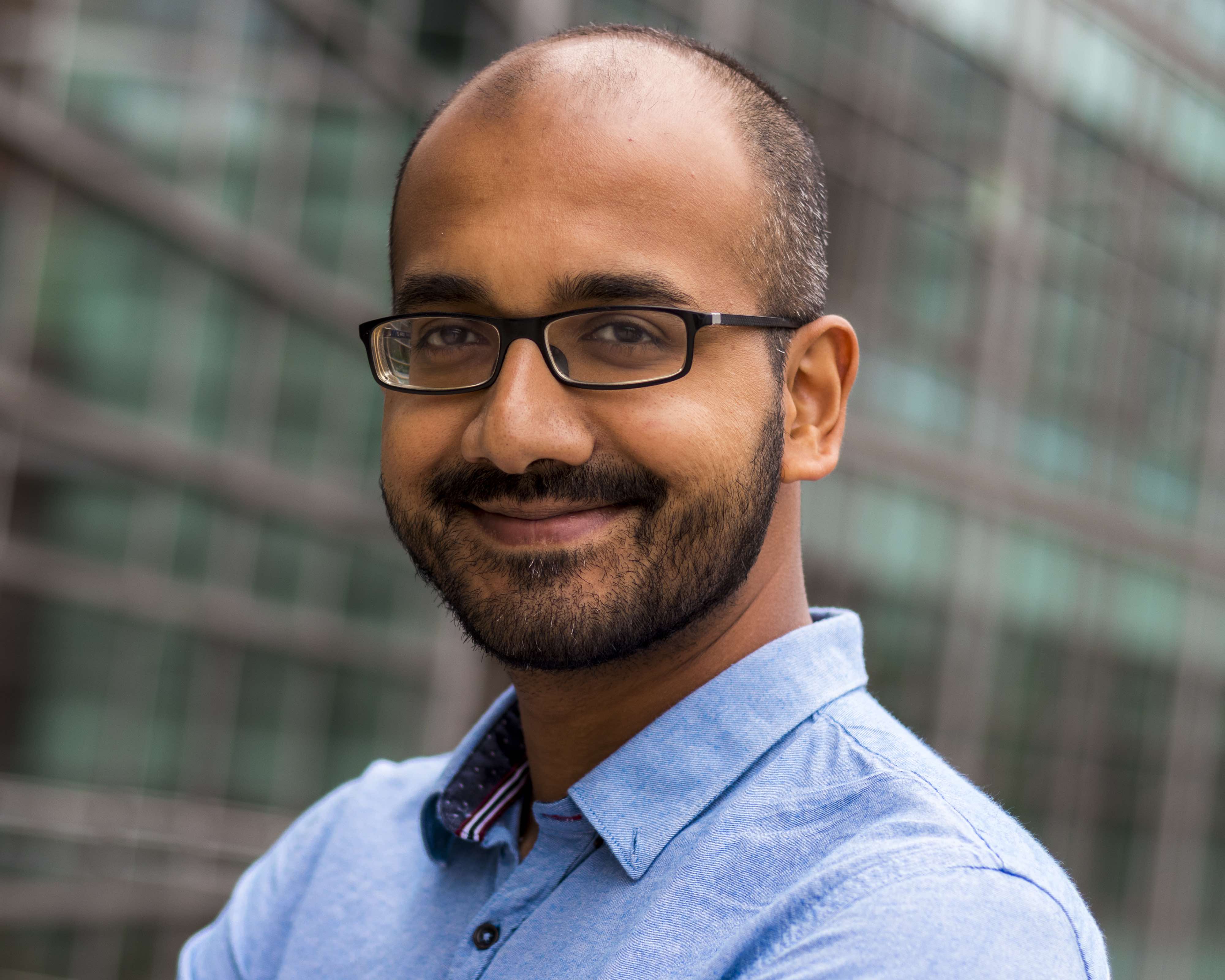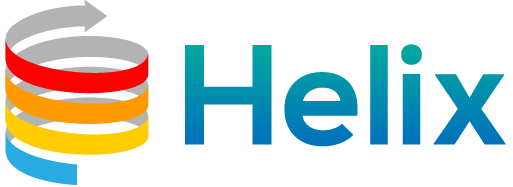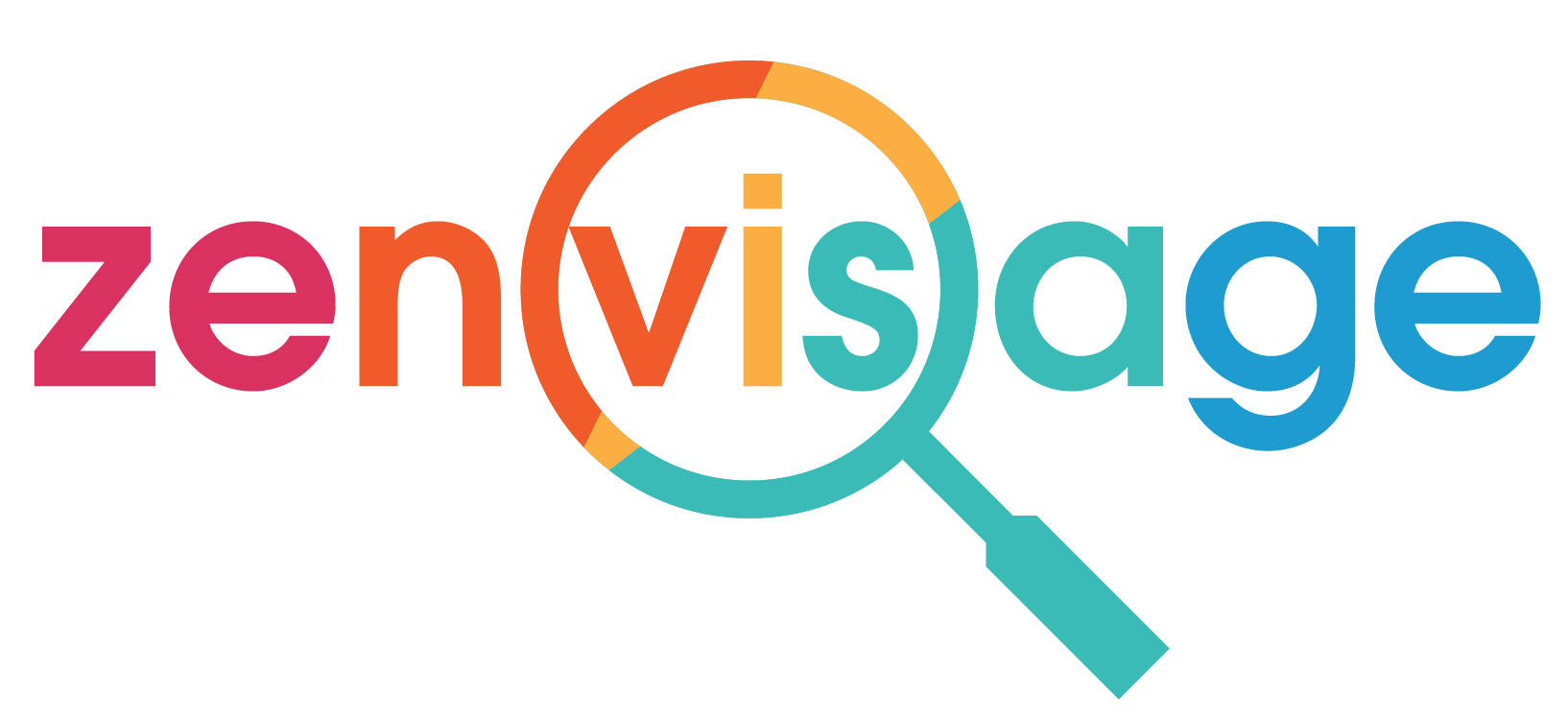Aditya Parameswaran

I am an Associate Professor in EECS at the University of California, Berkeley. I co-direct the EPIC Data Lab and the Police Records Access project. I co-founded Ponder, which was acquired by Snowflake in October 2023.
I am broadly interested in simplifying data science at scale, i.e., empowering individuals and teams to leverage and make sense of their large datasets more easily, efficiently, and effectively.
Of late, my team and I have been exploring LLM-powered data tooling: what are new approaches for data extraction, data transformation, and insight discovery, now with LLMs as key ingredient.
We are always looking for postdocs, PhD, MS, and UG students or research/development staff to join our efforts! If you are a postdoc or staff applicant, feel free to email me directly with your CV and qualifications. If you are an aspiring PhD student, please apply to our PhD program. If you are an MS or UG student, feel free to fill out this form: it is rare that we will work with UG/MS students outside UC Berkeley except in cases of unusually good fit.
Formal Biographical Sketch
Aditya Parameswaran is an Associate Professor in Electrical Engineering and Computer Sciences (EECS) at UC Berkeley. Aditya co-directs the EPIC Data Lab, a lab targeted at low/no-code data tooling powered by LLMs. Aditya also co-directs the Police Records Access project, an initiative to build a first-of-its-kind state-wide police use-of-force and misconduct database. Until its acquisition by Snowflake in October 2023, Aditya served as the President of Ponder, a company he co-founded with his students based on popular data science tools developed at Berkeley. Aditya develops next-generation data tooling — making it easy for end-users and teams to leverage and make sense of their large and complex datasets — by synthesizing techniques from data systems, human-computer interaction, and artificial intelligence. Multiple tools from his group (DocETL, IPyFlow, Modin, Lux) have been widely adopted by end-users, with tens of millions of downloads.
Click here for a longer bio.News
- April 18, 2025: We released a preprint on a new interface, RAGGY, for debugging RAG pipelines.
- April 15, 2025: Grad school admission decisions: undergrad alums Ruiying and Reya got into grad school from a number of top places! Reya will be heading to Columbia, while Ruiying will be returning as a grad student to Berkeley!
- April 15, 2025: We contributed to the once-every-five-years report on the future of database research, take a look!
- April 7, 2025: Chroma's Generative Benchmarking approach uses Shreya et al's EvalGen work.
- March 1, 2025: Our paper, led by Reya and Shreya, on a benchmark of assertions for LLM pipelines was accepted to NAACL as an oral talk!
- February 24, 2025: Turns out, with LLMs, your data systems can now become more proactive. Read about our new vision paper here.
- January 16, 2025: I co-wrote a blog post on challenges in data exploration and visual analytics that appeared on the SIGMOD blog.
- January 15, 2025: Our preprint on extracting information from templatized documents, led by Yiming, is up! The results are astounding: 20-30% higher precision and recall than state-of-the-art, at a fraction of the cost and time.
- January 13, 2025: We've been building an IDE for authoring semantic data processing pipelines in DocETL, called DocWrangler. You can play with it in our playground. Led by Shreya and Bhavya. Blogpost here.
- January 4, 2025: Call for papers at the first Data-AI Systems workshop is out.
- November 12, 2024: Shreya presented our paper on the three V's of MLOps at CSCW. Paper here.
- November 1, 2024: We released TARGET, a table retrieval benchmark, led by Madelon. See here.
- October 22, 2024: I appeared on a podcast called Disseminate and spoke about our CIDR'11 paper, one of the most influential database papers from that year according to a ranking from Ryan Marcus. Listen here.
- October 16, 2024: Our DocETL preprint is out! Lots of people on GitHub and Discord getting value from it already - spanning domains ranging from forensic analysis to climate science to medical data analysis. Over a 1000 GitHub stars already. Excited to have this out there.
- September 20, 2024: Sep's NUDGE framework is now part of LlamaIndex.
- September 20, 2024: Rachel's paper on RequestAtlas was accepted at CSCW'2025!
- September 16, 2024: Excited to see pandas-to-SQL translation that we pioneered at Ponder now generally available to all Snowflake customers. Congrats Ponder team!
- September 5, 2024: Sep's paper on lightweight fine-tuning of retrieval for RAG is now on Arxiv. Blog post here. This is a no-brainer for folks wanting to improve retrieval without paying the cost of expensive fine-tuning!
- September 5, 2024: We restarted our blog! See here.
- September 4, 2024: Congrats to incoming PhD student Bhavya Chopra for a VL/HCC best paper (her second in two years!)
- September 1, 2024: Congrats to alum Madelon Hulsebos for starting as faculty at CWI, a leading research institution in Amsterdam!
- August 29, 2024: Shreya presented her work on EvalGen and SPADE at Princeton.
- August 15, 2024: Welcome to incoming PhD students Bhavya Chopra and HC Moore! And goodbyes to Prof. Eugene Wu from Columbia who was visiting us this past year - we'll miss you Eugene!
- July 23, 2024: Our work on translating dataframes to databases was awarded two patents, see here and here.
- July 15, 2024: Our work on transactional panorama won a "best of VLDB 2023" award; congrats Dixin!
- July 1, 2024: Shreya's EvalGen paper was accepted at UIST'24!
- June 26, 2024: Shreya's work on evaluation assistants was deployed by LangChain! Read more here. She also wrote a piece with other LLM practitioners on best practices with LLMs here.
- June 1, 2024: Our papers on SMASH (a string alignment algorithm) and SPADE (an LLM-powered assertion generation system) were accepted at VLDB! Five letter acroynms FTW!
- May 5, 2024: Our paper on dataset search, led by Madelon, was accepted at HILDA! Preprint here.
- May 1, 2024: New preprint up on document analytics with LLMs as part of our new ZenDB system, led by Yiming. Read about it here!
- April 28, 2024: Shreya summarized her work on evaluating LLM pipelines, from SPADE to EvalGen, as part of an MLSys seminar. Listen here!
Synergistic Activities
I serve on the steering committees of Data AI Systems Workshop @ICDE, HILDA (Human-in-the-loop Data Analytics) at SIGMOD and DSIA (Data Systems for Interactive Analysis) at VIS. Lots of excitement around this nascent area at the intersection of AI, databases, data mining, and visualization/HCI - join us! I currently serve as the Faculty Equity Advisor and the Space Lead for Systems for the Computer Science Division in EECS; I also served as the Faculty Equity Advisor at the School of Information for two terms in 2023 and 2021.
I am serving as an Area Chair for SIGMOD 2026 and VLDB 2025 Demo. I also serve as the Associate Editor for VLDB Journal. I am serving on the program committee for VLDB Tutorials 2025, VLDB 2024-25, and CIDR 2025. I've served on the Program Committees and as Area Chair/Editor of VLDB, KDD, SIGMOD, WSDM, WWW, SOCC, HCOMP, ICDE, and EDBT, many of them multiple times.
Recent Releases
- PAPER RequestAtlas: Supporting the Slow and Iterative Process of Requesting Public Records.
Rachel Warren, Aditya G. Parameswaran, Lisa Pickoff-White, Niloufar Salehi. 28th Int'l Conference on Computer-Supported Cooperative Work (CSCW), Bergen, Norway. November 2025
(Used by journalists for managing 1000s of public record requests.) - PAPER Towards Accurate and Efficient Document Analytics with Large Language Models.
Yiming Lin, Madelon Hulsebos, Ruiying Ma, Shreya Shankar, Sepanta Zeighami, Aditya G. Parameswaran, Eugene Wu. 41st IEEE Int’l Conf on Data Engineering (ICDE), Hong Kong. May 2025 - PAPER PromptEvals: A Dataset of Assertions and Guardrails for Custom Production Large Language Model Pipelines.
Reya Vir*, Shreya Shankar*, Harrison Chase, William Hinthorn, Aditya G. Parameswaran. 20th Conf. of the Nations of the Americas Chapter of the Association for Computational Linguistics (NAACL), Albuquerque, USA. April 2025
(Done in collaboration with LangChain, a leading LLM workflow company.) - PRE-PRINT RAG Without the Lag: Interactive Debugging for Retrieval-Augmented Generation Pipelines.
Quentin Romero Lauro*, Shreya Shankar*, Sepanta Zeighami, Aditya G. Parameswaran. Technical Report. April 2025 - PRE-PRINT TWIX: Automatically Reconstructing Structured Data from Templatized Documents.
Yiming Lin, Mawil Hasan, Rohan Kosalge, Alvin Cheung, Aditya G. Parameswaran. Technical Report. April 2025 - PRE-PRINT Steering Semantic Data Processing with DocWrangler.
Shreya Shankar*, Bhavya Chopra*, Mawil Hasan, Stephen Lee, Björn Hartmann, Joseph M. Hellerstein, Aditya G. Parameswaran, Eugene Wu. Technical Report. April 2025
(The deployed version of DocWrangler has been used over 1500 times.) - PRE-PRINT The Cambridge Report on Database Research.
Anastasia Ailamaki, ..., Aditya Parameswaran, .... Technical Report. April 2025
(This is a once-every-five-years report on data management research, written by experts in the field.) - PRE-PRINT Why Do Multi-Agent LLM Systems Fail?.
Mert Cemri, Melissa Z Pan, Shuyi Yang, Lakshya A Agrawal, Bhavya Chopra, Rishabh Tiwari, Kurt Keutzer, Aditya Parameswaran, Dan Klein, Kannan Ramchandran, Matei Zaharia, Joseph E Gonzalez, Ion Stoica. Technical Report. March 2025 - PAPER NUDGE: Lightweight Non-Parametric Fine-Tuning of Embeddings for Retrieval.
Sepanta Zeighami, Zac Wellmer, Aditya G. Parameswaran. 13th Int’l Conf on Learning Representations (ICLR), Singapore. March 2025
(Deployed by LlamaIndex as part of their open-source.) - PAPER LLM-Powered Proactive Data Systems.
Sepanta Zeighami, Yiming Lin, Shreya Shankar, Aditya G. Parameswaran. IEEE Data Engineering Bulletin, Issue on LLMs-meets-data. March 2025 - PAPER Flow with FlorDB: Incremental Context Maintenance for the Machine Learning Lifecycle.
Rolando Garcia, Pragya Kallanagoudar, Chithra Anand, Sarah E. Chasins, Joseph M. Hellerstein, Aditya G. Parameswaran. 25th Conference on Innovative Data Systems Research (CIDR), Amsterdam, Netherlands. January 2025 - PAPER Benchmarking Table Retrieval for Generative Tasks.
Carl Ji, Aditya Parameswaran, Madelon Hulsebos. TRL Workshop @ NeurIPS 2024, Vancouver, Canada. November 2024 - PAPER 'We Have No Idea How Models will Behave in Production until Production': How Engineers Operationalize Machine Learning.
Shreya Shankar, Rolando Garcia, Joseph M. Hellerstein, Aditya G. Parameswaran. 27th Int'l Conference on Computer-Supported Cooperative Work (CSCW), San Jose, Costa Rica. November 2024
(The 3 V's of MLOps, coined by this paper, was covered in a number of industry blogs and podcasts.) - PAPER Inferring Visualization Intent from Conversation.
Haotian Li, Nithin Chalapathi, Huamin Qu, Alvin Cheung, Aditya G. Parameswaran. 33rd Int’l Conf on Information and Knowledge Management (CIKM), Boise, USA. October 2024 - PRE-PRINT DocETL: Agentic Query Rewriting and Evaluation for Complex Document Processing.
Shreya Shankar, Aditya G. Parameswaran, Eugene Wu. Technical Report. October 2024
(Over 1.4K Github stars and multiple users across domains.)
Medium Blog
Selected Projects

LLMs In Production
Supporting and sustaining LLMs in production, including building robust pipelines, identifying valuable constraints/assertions, evaluating performance, and maintaining state for long-running pipelines.
PAPER PromptEvals: A Dataset of Assertions and Guardrails for Custom Production Large Language Model Pipelines.Reya Vir*, Shreya Shankar*, Harrison Chase, William Hinthorn, Aditya G. Parameswaran. 20th Conf. of the Nations of the Americas Chapter of the Association for Computational Linguistics (NAACL), Albuquerque, USA. April 2025
(Done in collaboration with LangChain, a leading LLM workflow company.)
PAPER 'We Have No Idea How Models will Behave in Production until Production': How Engineers Operationalize Machine Learning.
Shreya Shankar, Rolando Garcia, Joseph M. Hellerstein, Aditya G. Parameswaran. 27th Int'l Conference on Computer-Supported Cooperative Work (CSCW), San Jose, Costa Rica. November 2024
(The 3 V's of MLOps, coined by this paper, was covered in a number of industry blogs and podcasts.)
PAPER Who Validates the Validators? Aligning LLM-Assisted Evaluation of LLM Outputs with Human Preferences.
Shreya Shankar, J.D. Zamfirescu-Pereira, Björn Hartmann, Aditya G. Parameswaran, Ian Arawjo. 39th ACM Symposium on User Interface Software and Technology (UIST), Pittsburgh, USA. October 2024
(Deployed by LangChain as part of their LangChain Hub.)
PAPER SPADE: Synthesizing Assertions for Large Language Model Pipelines.
Shreya Shankar, Haotian Li, Parth Asawa, Madelon Hulsebos, Yiming Lin, J. D. Zamfirescu-Pereira, Harrison Chase, Will Fu-Hinthorn, Aditya G. Parameswaran, Eugene Wu. 50th International Conference on Very Large Data Bases (VLDB), Guangzhou, China. August 2024
(Deployed by LangChain as part of their LangChain Hub.)
PAPER Building Reactive Large Language Model Pipelines with Motion (Demo).
Shreya Shankar, Aditya G. Parameswaran. ACM SIGMOD Int'l Conf. on Management of Data , Santiago, Chile. June 2024
PAPER Revisiting Prompt Engineering via Declarative Crowdsourcing.
Aditya G. Parameswaran, Shreya Shankar, Parth Asawa, Naman Jain, Yujie Wang. Conference on Innovative Database Research (CIDR), Chaminade, USA. January 2024

Question Answering with LLMs
Building general-purpose question-answering systems with LLM-powered agents operating on stuctured data.
PRE-PRINT Why Do Multi-Agent LLM Systems Fail?.Mert Cemri, Melissa Z Pan, Shuyi Yang, Lakshya A Agrawal, Bhavya Chopra, Rishabh Tiwari, Kurt Keutzer, Aditya Parameswaran, Dan Klein, Kannan Ramchandran, Matei Zaharia, Joseph E Gonzalez, Ion Stoica. Technical Report. March 2025
PAPER NUDGE: Lightweight Non-Parametric Fine-Tuning of Embeddings for Retrieval.
Sepanta Zeighami, Zac Wellmer, Aditya G. Parameswaran. 13th Int’l Conf on Learning Representations (ICLR), Singapore. March 2025
(Deployed by LlamaIndex as part of their open-source.)
PAPER LLM-Powered Proactive Data Systems.
Sepanta Zeighami, Yiming Lin, Shreya Shankar, Aditya G. Parameswaran. IEEE Data Engineering Bulletin, Issue on LLMs-meets-data. March 2025
PAPER Benchmarking Table Retrieval for Generative Tasks.
Carl Ji, Aditya Parameswaran, Madelon Hulsebos. TRL Workshop @ NeurIPS 2024, Vancouver, Canada. November 2024

LLM-Powered Document Analytics
Supporting structured queries on unstructured data, including PDFs, with applications in social justice.
PAPER RequestAtlas: Supporting the Slow and Iterative Process of Requesting Public Records.Rachel Warren, Aditya G. Parameswaran, Lisa Pickoff-White, Niloufar Salehi. 28th Int'l Conference on Computer-Supported Cooperative Work (CSCW), Bergen, Norway. November 2025
(Used by journalists for managing 1000s of public record requests.)
PAPER Towards Accurate and Efficient Document Analytics with Large Language Models.
Yiming Lin, Madelon Hulsebos, Ruiying Ma, Shreya Shankar, Sepanta Zeighami, Aditya G. Parameswaran, Eugene Wu. 41st IEEE Int’l Conf on Data Engineering (ICDE), Hong Kong. May 2025
PRE-PRINT TWIX: Automatically Reconstructing Structured Data from Templatized Documents.
Yiming Lin, Mawil Hasan, Rohan Kosalge, Alvin Cheung, Aditya G. Parameswaran. Technical Report. April 2025
PRE-PRINT Steering Semantic Data Processing with DocWrangler.
Shreya Shankar*, Bhavya Chopra*, Mawil Hasan, Stephen Lee, Björn Hartmann, Joseph M. Hellerstein, Aditya G. Parameswaran, Eugene Wu. Technical Report. April 2025
(The deployed version of DocWrangler has been used over 1500 times.)
PAPER Flow with FlorDB: Incremental Context Maintenance for the Machine Learning Lifecycle.
Rolando Garcia, Pragya Kallanagoudar, Chithra Anand, Sarah E. Chasins, Joseph M. Hellerstein, Aditya G. Parameswaran. 25th Conference on Innovative Data Systems Research (CIDR), Amsterdam, Netherlands. January 2025
PRE-PRINT DocETL: Agentic Query Rewriting and Evaluation for Complex Document Processing.
Shreya Shankar, Aditya G. Parameswaran, Eugene Wu. Technical Report. October 2024
(Over 1.4K Github stars and multiple users across domains.)
PAPER Revisiting Prompt Engineering via Declarative Crowdsourcing.
Aditya G. Parameswaran, Shreya Shankar, Parth Asawa, Naman Jain, Yujie Wang. Conference on Innovative Database Research (CIDR), Chaminade, USA. January 2024

Lux: An always-on visualization recommendation system
Lux is a tool for effortlessly visualizing insights from very large data sets in dataframe workflows. Lux builds on half a decade of work on visualization recommendation systems.
Project page here.
PAPER Lux: Always-on Visualization Recommendations for Exploratory Data Science.Doris Jung-Lin Lee, Dixin Tang, Kunal Agarwal, Thyne Boonmark, Caitlyn Chen, Jake Kang, Ujjaini Mukhopadhyay, Jerry Song, Micah Yong, Marti A. Hearst, Aditya G. Parameswaran. 48th International Conference on Very Large Data Bases (VLDB), Sydney, Australia and Zoom. September 2022
(Downloaded over 675K times as of October 2023, and used in a variety of industries.)
PAPER Expressive Visual Querying for Accelerating Insight.
Tarique Siddiqui, Paul Luh, Zesheng Wang, Karrie Karahalios, Aditya G. Parameswaran. CACM, Volume 65 No. 7. 2022
(Invited Paper due to SIGMOD Best Paper Award.)
PAPER Leveraging Analysis History for Improved In Situ Visualization Recommendation.
Will Epperson, Doris Lee, Leijie Wang, Kunal Agarwal, Aditya Parameswaran, Dominik Moritz, Adam Perer. EuroVis’22: 24th Eurographics Conference on Visualization, Rome, Italy. 2022
PAPER Deconstructing Categorization in Visualization Recommendation: A Taxonomy and Comparative Study.
Doris Jung-Lin Lee, Vidya Setlur, Melanie Tory, Karrie Karahalios, Aditya Parameswaran. IEEE Int'l Conf. on Information Visualization (InfoVis), Zoom. October 2021
PAPER ShapeSearch: A Flexible and Efficient System for Shape-based Exploration of Trendlines.
Tarique Siddiqui, Zesheng Wang, Paul Luh, Karrie Karahalios, Aditya Parameswaran. SIGMOD Int'l Conf. on Management of Data, Portland, USA. June 2020
(Best Paper Award: 2 our of 450+ submissions.)
PAPER You can't always sketch what you want: Understanding Sensemaking in Visual Query Systems.
Doris Jung-Lin Lee, John Lee, Tarique Siddiqui, Jaewoo Kim, Karrie Karahalios, Aditya Parameswaran. IEEE Int’l Conf. on Visual Analytics Science & Technology (TVCG Track at VAST’19 at VIS), Vancouver, Canada. October 2019
PAPER Avoiding drill-down fallacies with VisPilot: assisted exploration of data subsets.
Doris Jung-Lin Lee, Himel Dev, Huizi Hu, Hazem Elmeleegy, Aditya Parameswaran. 24th International Conference on Intelligent User Interfaces (IUI), Los Angeles, USA. March 2019
PAPER The Case for a Visual Discovery Assistant: A Holistic Solution for Accelerating Visual Data Exploration.
Doris Jung-Lin Lee and Aditya Parameswaran. IEEE Data Engineering Bulletin, Issue on Insights and Explanations in Data Analysis. September 2018
PAPER Effortless Visual Data Exploration with Zenvisage: An Interactive and Expressive Visual Analytics System.
Tarique Siddiqui, Albert Kim, John Lee, Karrie Karahalios, Aditya Parameswaran. 43rd International Conference on Very Large Data Bases (VLDB), Munich, Germany. September 2017
PAPER Towards Visualization Recommendation Systems.
Manasi Vartak, Silu Huang, Tarique Siddiqui, Samuel Madden, and Aditya Parameswaran. SIGMOD Record, Chicago, USA. December 2016
PAPER SeeDB: Efficient Data-Driven Visualization Recommendations to Support Visual Analytics.
Manasi Vartak, Sajjadur Rahman, Samuel Madden, Aditya Parameswaran, and Neoklis Polyzotis. 42nd International Conference on Very Large Data Bases (VLDB), New Delhi, India. September 2016

Modin: A Scalable Dataframe System
Modin applies database and distributed systems ideas to help run dataframe workloads faster, with over 2M open-source downloads.
Project page here.
PAPER Flexible Rule-Based Decomposition and Metadata Independence in Modin: A Parallel Dataframe System.Devin Petersohn*, Dixin Tang*, Rehan Durrani, Areg Melik-Adamyan, Joseph E. Gonzalez, Anthony D. Joseph, Aditya G. Parameswaran. 48th International Conference on Very Large Data Bases (VLDB), Sydney, Australia and Zoom. September 2022
(Downloaded over 14M times as of October 2023, and used in a variety of industries.)
PAPER Enhancing the Interactivity of Dataframe Queries by Leveraging Think Time..
Doris Xin, Devin Petersohn, Dixin Tang, Yifan Wu, Joseph E. Gonzalez, Joseph M. Hellerstein, Anthony D. Joseph, Aditya G. Parameswaran. IEEE Data Engineering Bulletin, Issue on Data Validation for Machine Learning. May 2021
PAPER Towards Scalable Dataframe Systems.
Devin Petersohn, Stephen Macke, Doris Xin, William Ma, Doris Lee, Xiangxi Mo, Joseph E. Gonzalez, Joseph M. Hellerstein, Anthony D. Joseph, Aditya Parameswaran. 46th Int'l Conf. on Very Large Data Bases, Tokyo, Japan. August 2020
NBTools: Better Computational Notebooks
NBsafety and NBslicer make it easy for data scientists to write correct, reproducible code in computational notebooks.
Project page here.
PAPER Bolt-on, Compact, and Rapid Program Slicing for Notebooks.Shreya Shankar*, Stephen Macke*, Sarah Chasins, Andrew Head, Aditya G. Parameswaran. 49th International Conference on Very Large Data Bases (VLDB), Vancouver, Canada. September 2023
(The underlying open-source IPyflow tool has 275K Downloads, 1000 GitHub Stars as of October 2023.)
PAPER Fine-Grained Lineage for Safer Notebook Interactions.
Stephen Macke, Hongpu Gong, Doris Jung-Lin Lee, Andrew Head, Doris Xin, Aditya Parameswaran. 47th International Conference on Very Large Data Bases (VLDB), Copenhagen, Denmark and Zoom. September 2021
(Downloaded over 240K times as of June 2023.)

DataSpread: A Spreadsheet-Database Hybrid
DataSpread is a tool that marries the best of databases and spreadsheets.
Project page: here
PAPER Visualizing Spreadsheet Formula Graphs Compactly.Fanchao Chen, Dixin Tang, Haotian Li, Aditya G. Parameswaran. 49th International Conference on Very Large Data Bases (VLDB), Vancouver, Canada. September 2023
PAPER Efficient and Compact Spreadsheet Formula Graphs.
Dixin Tang, Fanchao Chen, Christopher De Leon, Tana Wattanawaroon, Jeaseok Yun, Srinivasan Seshadri, Aditya G. Parameswaran. 39th International Conf. on Data Engineering (ICDE), Anaheim, CA, USA. April 2023
PAPER NOAH: Interactive Spreadsheet Exploration with Dynamic Hierarchical Overviews.
Sajjadur Rahman, Mangesh Bendre, Yuyang Liu, Shichu Zhu, Zhaoyuan Su, Karrie Karahalios, Aditya Parameswaran. 47th International Conference on Very Large Data Bases (VLDB), Copenhagen, Denmark and Zoom. September 2021
PAPER Benchmarking Spreadsheet Systems.
Sajjadur Rahman, Kelly Mack, Mangesh Bendre, Ruilin Zhang, Karrie Karahalios, Aditya Parameswaran. SIGMOD Int'l Conf. on Management of Data, Portland, USA. June 2020
(Covered in the Morning Paper, a popular industry blog)
PAPER Understanding Data Analysis Workflows on Spreadsheets: Roadblocks and Opportunities.
Pingjing Yang, Ti-Chung Cheng, Sajjadur Rahman, Mangesh Bendre, Karrie Karahalios, Aditya Parameswaran. Workshop on Human-in-the-Loop Data Analytics (HILDA) at the ACM SIGMOD Int'l Conf. on Management of Data, Portland, USA. June 2020
PAPER Anti-Freeze for Large and Complex Spreadsheets: Asynchronous Formula Computation.
Mangesh Bendre, Tana Wattanawaroon, Kelly Mack, Kevin Chang, Aditya Parameswaran. SIGMOD Int'l Conf. on Management of Data, Amsterdam, The Netherlands. June 2019
PAPER Faster, Higher, Stronger: Redesigning Spreadsheets for Scale (Demo).
Mangesh Bendre, Tana Wattanawaroon, Sajjadur Rahman, Kelly Mack, Yuyang Liu, Shichu Zhu, Yu Lu, Ping-Jing Yang, Xinyan Zhou, Kevin Chang, Karrie Karahalios, Aditya Parameswaran. 35th International Conf. on Data Engineering (ICDE), Macau. April 2019
(Best Demo Award: Given to two out of 24 papers.)
PRE-PRINT Directed Data Management: A New Frontier in Database Usability.
Mangesh Bendre, Sajjadur Rahman, Tana Wattanawaroon, Kelly Mack, Yu Lu, Kevin Chang, Karrie Karahalios, Aditya Parameswaran. Technical Report. August 2018
PAPER Towards a Holistic Integration of Spreadsheets with Databases: A Scalable Storage Engine for Presentational Data Management.
Mangesh Bendre, Vipul Venkataraman, Xinyan Zhou, Kevin Chang, Aditya Parameswaran. 34th International Conf. on Data Engineering (ICDE), Paris, France. April 2018
PAPER Characterizing Scalability Issues in Spreadsheet Software using Online Forums (Case Study Paper).
Kelly Mack, John Lee, Kevin Chang, Karrie Karahalios, Aditya Parameswaran. International Conference on Human Factors in Computing Systems (CHI), Montreal, Canada. April 2018
PAPER Data-Spread: Unifying Databases and Spreadsheets (Demo).
Mangesh Bendre, Bofan Sun, Xinyan Zhou, Ding Zhang, Shy-Yauer Lin, Kevin Chang, and Aditya Parameswaran. 41st International Conference on Very Large Data Bases (VLDB), Kohala Coast, Hawaii, USA. September 2015
 *BIG NEWS!* I moved to
*BIG NEWS!* I moved to  Our project page for Helix is
Our project page for Helix is  My O'Reilly Blog post on "Enabling Data Science
for the Majority" is
My O'Reilly Blog post on "Enabling Data Science
for the Majority" is  New preprint on characterizing the spectrum of scalability issues
in Microsoft Excel via Reddit posts
New preprint on characterizing the spectrum of scalability issues
in Microsoft Excel via Reddit posts  The Zenvisage gang chronicle
our multi-year effort in participatory design with Zenvisage along with scientists from material science, genetics, and astrophysics is chronicled
The Zenvisage gang chronicle
our multi-year effort in participatory design with Zenvisage along with scientists from material science, genetics, and astrophysics is chronicled  Thanks to new funding from the NSF Algorithms in the Field (AitF) program, we can advance scalable visualization by applying sublinear time techniques, along with the super smart theory duo of Ronitt Rubinfeld (MIT) and Ilias Diakonikolas (USC). NSF page
Thanks to new funding from the NSF Algorithms in the Field (AitF) program, we can advance scalable visualization by applying sublinear time techniques, along with the super smart theory duo of Ronitt Rubinfeld (MIT) and Ilias Diakonikolas (USC). NSF page  Thanks to Adobe for supporting our research efforts!
Thanks to Adobe for supporting our research efforts!
 , our versioned database system:
, our versioned database system:  , our project on optimizing crowdsourcing:
, our project on optimizing crowdsourcing:  We just heard word that NIH has funded our BD2K commons supplement.
Looking forward to working with folks at UChicago to improve data publication workflows!
We just heard word that NIH has funded our BD2K commons supplement.
Looking forward to working with folks at UChicago to improve data publication workflows!